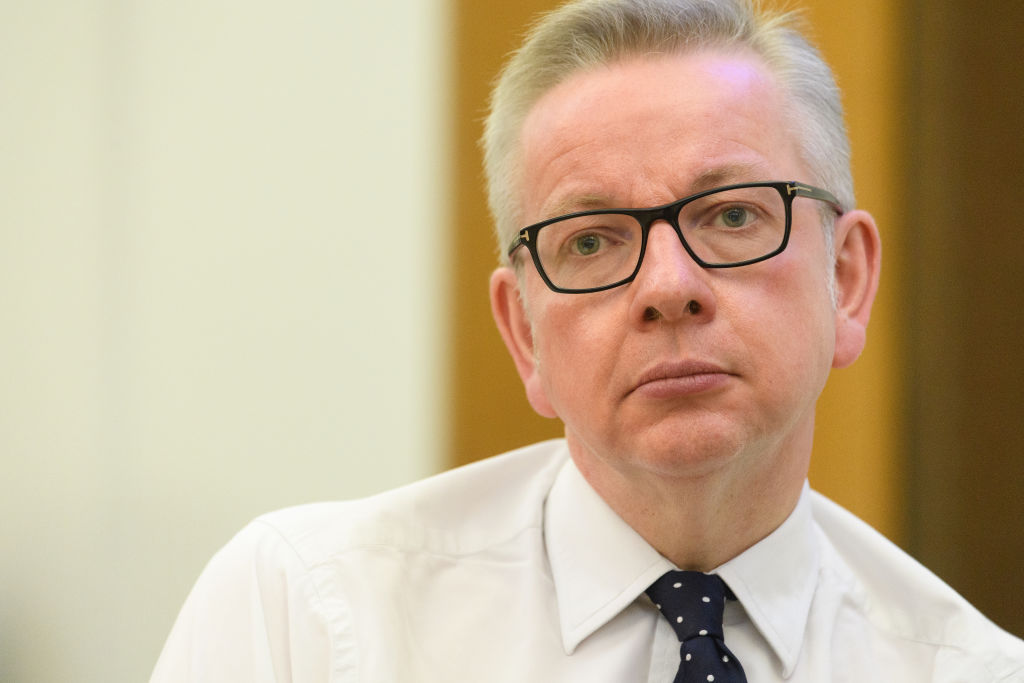One of the many things that has been neglected in the Conservative Party because of all-consuming Brexit is a meaningful debate about markets and business.
Confronted with a Labour leader offering a clear critique of capitalism as a “rigged” system and outflanked by Nigel Farage telling a remarkably similar story about big money financing a self-regarding elite, the Tories have generally offered two responses. Both are flawed.
On one hand are those who think the answer to complaints about the economy is to yell about Margaret Thatcher, Milton Friedman and sometimes Singapore. Liz Truss has become the most prominent advocate of what Stian Westlake rather brilliantly calls “live-action role-playing Thatcherism”. But there are many Tories who appear to think that the vote to Leave – and the relative popularity of Jeremy Corbyn – are a demand from the electorate for lower taxes, deregulation and an unabashed celebration of big business.
On the other end of this spectrum are the would-be populists willing to ape Corbyn-Farage with a stance on business and markets driven by Brexit. They form part of an emerging agenda that could yet make the Tories a National Party that abandons metropolitan voters and tries to build a majority with a protectionist agenda it hopes will appeal to Labour-leaning voters in Mansfield and Middlesborough. And if business doesn’t like it, so much the better. Boris Johnson’s “fuck business” was more than a gaffe, it was a statement of political strategy.
As a non-Tory who likes the market economy but worries about its failings, I find both of these arguments unconvincing and, worse, the level of Tory debate about markets pretty shallow.
I’m not alone in that. A City friend recently confided that though he voted Tory all his life, “John McDonnell has a better understanding of the problems in the UK economy today than most Tories, even if he’s wrong about how to solve them.”
In this context, I was very pleased today to host a Social Market Foundation speech by Nick Gibb, the schools minister, who set out a critique of capitalism that seeks to chart a sensible path between those two extremes.
You can watch the whole speech here. Or read Gibb’s sharp precis of his text here.
My own summary of his – very good – speech is that anyone who wants to defend the market economy from public anger needs to accept that system’s imperfections and fix them, sharpish.
That means accepting that executive pay is often too high, that some big companies don’t pay enough tax, that some companies don’t treat their customers or staff decently and that the state needs to do more to curb the power of companies to behave in such ways, since their conduct will ultimately undermine public consent for the market economy.
This amounts to an agenda of saving capitalism from capitalists, and that is a job — in part – for the state:
“Capitalism does work best when least fettered by rules and regulations that can crush innovation and stifle enterprise. But the free market has always relied on rules and the rule of law for it to function. It relies on the state to provide security, infrastructure, enforcement of contracts, title to land and the protection of intellectual property. “We need to make sure those rules and regulations are fit and proper for the challenges of the 21st century, as Teddy Roosevelt did to tackle the concentrations of power at the start of the 20th century.”
Gibb ended by talking about the importance of tone, conceding that one reason Tories have been losing the fight about markets is that they just haven’t appeared to be angry enough about failures of capitalism, especially the 2007/8 financial crisis:.
“We need to demonstrate an anger about things that go wrong that affect ordinary people in a way that they do not always affect people in Westminster. We should be more angry.”
Gibb was happy to say he was speaking outside his ministerial brief in the hope that he could encourage Tory leadership contenders to engage with that agenda. That seems a sensible aim to me. It is almost inevitable that the Tory leadership contest will be all about Brexit. But if the party retains a shred of common sense and self-preservation, it will pick a leader who has something meaningful to say about economics and markets.
Who might that be? Gibb named no names, but said he believed a new leader should make the Tories “a party for the powerless with a revolutionary zeal to pick up the mantle of change, determined to take on vested interests and monopolies of power.”
And as I listened to Gibb say that, I thought of another speech by another Tory with an education background, delivered four years ago and including these words:
“Only if we remind people of our commitment to social justice, demonstrate our belief in equality of opportunity and affirm that we are warriors for the dispossessed will we be able to win arguments, and elections, and then be in a position genuinely to help the vulnerable and the voiceless. People need to know what’s in our hearts before they are prepared to consider our arguments in their heads.”
That speech was given by Michael Gove and remains one of the most interesting – and underexplored – texts in recent Conservative thinking about economics and fairness. And all the signs are that Gove will be a candidate in the next Conservative leadership race. The Conservative debate about markets, long neglected, is becoming more interesting.







Comments